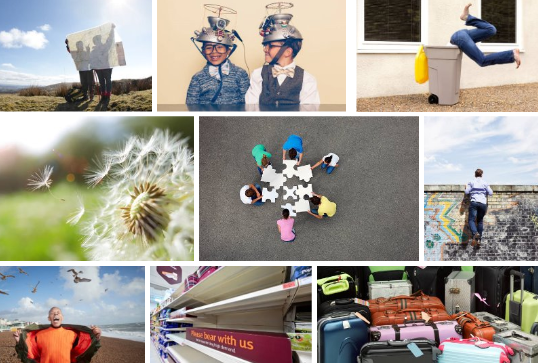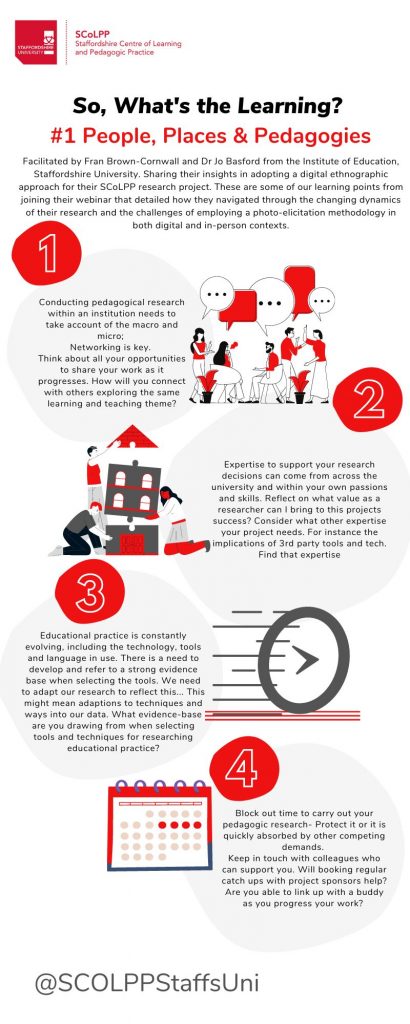
The new year came with the new webinar series from SCoLPP, “So, What’s the Learning?” The aim is to bring together individuals and teams who are knee-deep in the challenging, exciting and at times complex work of embedding interventions, research, and evaluation to positively influence successful life chances of all learners, regardless of background.
Each #SWTL webinar offers:
- The sharing of interesting pedagogic perspectives with the wider HE community
- The chance to consider how such learning applies within your own context
- Opportunity to develop tangible skill(s) for enhanced practice

Our first session: People, places and pedagogies: navigating through the terrain of digital ethnography, was led by Fran Brown-Cornwall (@FrankieCornwall) and Dr Jo Basford (@basford_jo) from the Institute of Education, Staffordshire University.
In this session Fran and Jo shared their insights in adopting a digital ethnographic approach for their SCoLPP research project. We heard how Fran and Jo experienced the changing dynamics of their research and the challenges of employing a photo-elicitation methodology in both digital and in-person contexts. It was discussed how this methodology helps participants to ‘sharpen’ their ability to reflect upon and explain their experiences and perceptions as well as encourage collaborative knowledge production (Auken, Firvoll and Stewart, 2010).
Want to view the recorded webinar?
https://vimeo.com/manage/videos/797407583/privacy
Things that resonated for us- SCoLPP’s learning points
The session got us thinking (thanks Jo and Fran!) about the practicalities, the emotional investment and collaborative aspects of undertaking pedagogic research within your own institution. We have pooled our reflections together in a little sketchnote. We would love to hear your learning- what did the session prompt for you?

What’s your experience? Please do leave comments or tweet your thoughts via #WhatsTheLearning
- Have you used photo-elicitation as part of your research or as a way to engage with students? What would you recommend to others?
- How have you worked with technology to support your research and evaluation in HE learning and teaching? Any pitfalls to avoid?

